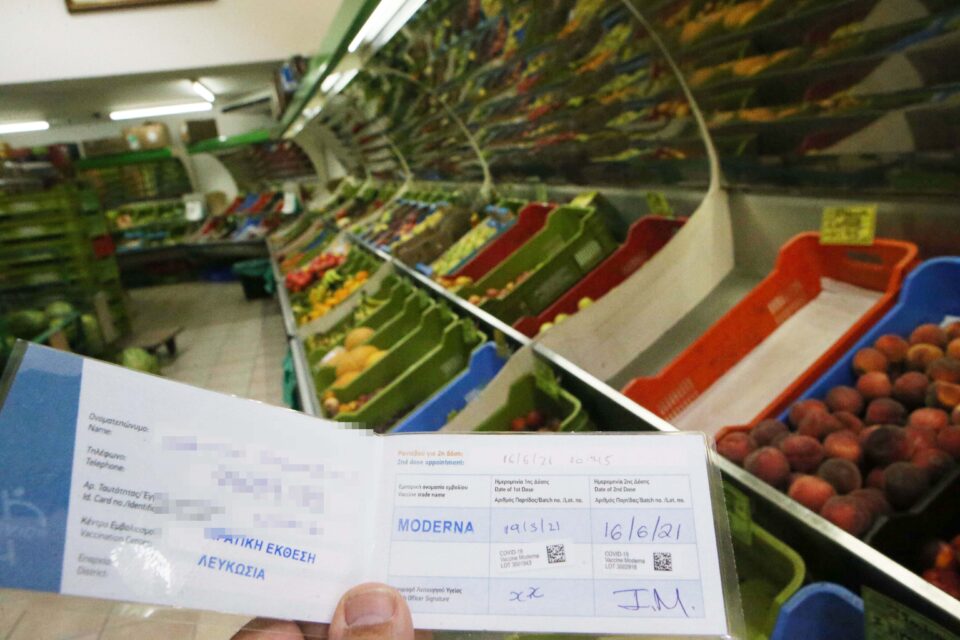Three years ago, Cyprus declared its first case of coronavirus, shuttered the island and locked down the population with the same mantra as every other government – three weeks to flatten the curve.
Without getting into the specifics, of which we are all familiar, suffice to say that never in living memory have governments in the West intervened to such an extent in the daily lives of the people, and gotten away with it.
They hid inconvenient facts and used scare tactics to ‘nudge’ people in any direction they wished. This could be forgiven in the early days of the pandemic when everyone was operating in the dark, but it is unforgivable that they continued what were in some cases nonsensical made-up measures that had no scientific basis once the data was in.
Some of the restrictions were so convoluted that people could barely follow them. The most standout example was being able to go to the beach and swim but not sit on the sand even though there were literally no tourists around so social distancing was not a problem.
It could be said the intentions were good, but these very often lead to unintended consequences and knee-jerk rules, which ended up being unworkable and lacking in common sense. And it seems nothing has been learned as those who rule us keep coming up with new ways to micromanage the ills of society.
Two proposals heard last week could very easily fall into this category. The first was made by the betting authority for a Gesy screening programme to provide preventative treatment to “persons who display early signs of gambling addiction.” This came up at House committee.
There is so much to unpack in this one sentence in terms of workability that it would be futile to do so, except to ask whether a sick patient visiting a personal doctor would be quizzed on whether they gamble and to what extent? Surely that would be a total invasion of privacy, not to mention that any gambler who did not wish to stop his vice would just answer ‘no.’
In the same vein, lawmakers also heard of cases of Guaranteed Minimum Income recipients, as well as people on disability benefits, spending all their cash on gambling. They were then told about an ‘exclusion’ platform that will list all welfare recipients so that they are barred from games of chance. Will this also apply to beneficiaries who buy a lotto ticket once in a while? Is the state really going to set up an official list of poor people on MGI and disability benefits to stop them gambling?
How else will the state interfere in people’s lives? According to the betting authority’s figures, most gambling is done online, not in casinos or lotto outlets. Will the internet IP of suspected GMI gamblers be blocked? And would they be committing a crime of they use a friend’s PC to gamble?
Admittedly, gamblers, alcoholics and drug addicts may need societal assistance but people suffering from addiction can only be helped if they really want it. Whatever their poison, addicts will always find an illicit way to feed their addictions if they are not ready to let them go. More support, not more government interference would seem to be the sensible solution.
Australia has tried this method and failed. People on benefits got a spending card that prevented them from gambling, buying alcohol and cigarettes. But last year, the Australian audit office found the pilot programme had not met its intended objectives of supporting recipients to “better manage their finances and encourage socially responsive behaviour”. It just increased crime and misery.
Former Finance Minister Constantinos Petrides late last year while attending a betting conference effectively said the same thing. “…universal prohibitions lead to illegality, which will have disproportionate and large social implications.”
The second thing revealed this week was that a new law had been passed giving priority to vulnerable groups in areas serving the public, even as doubts were expressed as to implementation.
The law covers the disabled and those over 75, which seems like a nice thing to do for them. But it also mentions “other vulnerable groups”, which were curiously not specified. It’s difficult to think of any other “vulnerable groups” that should get this kind of preferential treatment. Pregnant women were not included because while some women might have appreciated it, others decided that being pregnant was not a disability.
It’s also not clear that in the event of such positive discrimination who would get priority, the disabled person in a wheelchair or the elderly person standing on their feet? Does a non-vulnerable person with a broken leg and on crutches have to stay at the back of the line?
Micromanaging people’s behaviour with countless rules is no way to improve lives. It is a form of oppression that erodes the basic tenets of free society, but it seems the infringements on individual liberties of the pandemic era have become the new normal. We must not put up with it.







Click here to change your cookie preferences